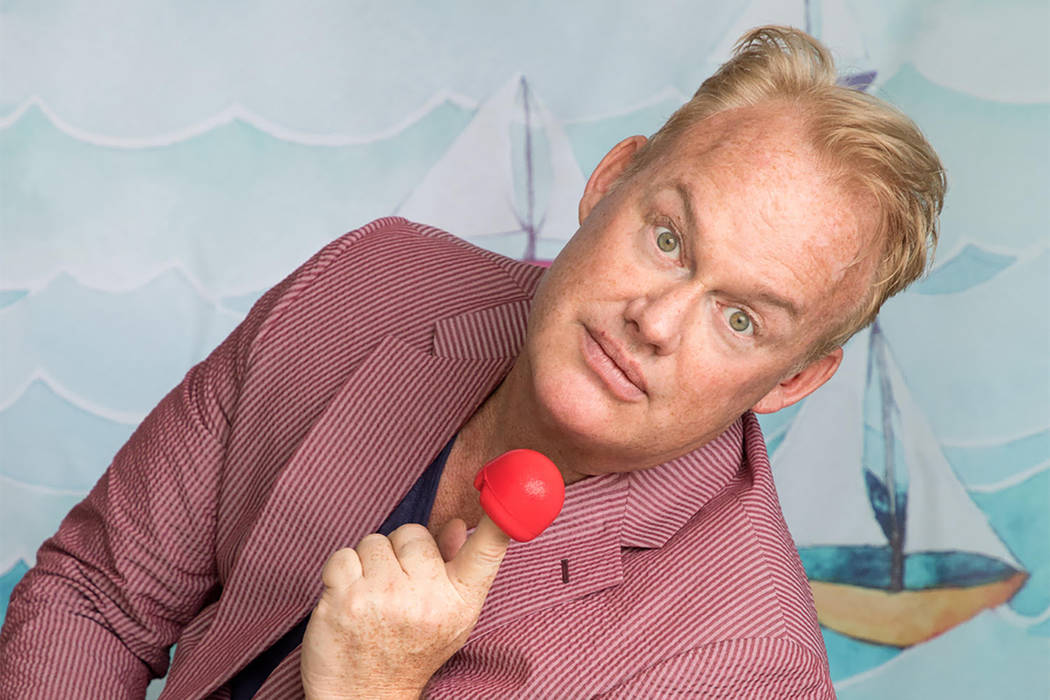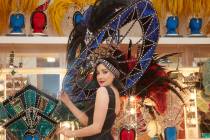Storyteller James Judd shares craft with Southern Nevadans
Everybody has a story to tell. Lots of stories, probably. But transforming the raw ingredients of experience into an entertaining anecdote isn’t always easy.
Enter James Judd of Miami, who is, well, storied, both in live performances and as a contributor to National Public Radio’s “Snap Judgment.” On Wednesday, he’ll conduct two free storytelling workshops at the Clark County Library, and on Thursday, he’ll tell some of his own stories during a free show at the library’s Main Theater.
Judd has a background in stand-up and sketch comedy and improvisation, and his own autobiographical pieces include stories about a vicious fifth-grade academic competition with a mean-girl classmate, a shark encounter and his pen pal relationship with a fake doctor who was convicted of killing a patient.
Some of his pieces contain elements of stand-up comedy — often with live music — but he considers storytelling and stand-up to be different art forms.
“Stand-up is aggressive. You’ve got to kill onstage or you die,” he says. “Storytelling, you are sharing a piece of yourself for an audience looking for an empathetic experience.”
A story also has an arc of beginning, middle and end.
For Judd, storytelling is an everyday art, practiced by all of us and employed in situations including job interviews (“So tell me a little bit about yourself …” ), social gatherings and bus stop chitchat. Yet, he says, most of us panic when the moment arrives to “tell your story the way you want it told.”
“Why this workshop is so important is, literally, everybody needs to be walking around with a pocketful of anecdotes,” Judd says.
The best stories are true and personal, with comedic elements that arise organically, Judd says. “People think, ‘I don’t have anything to say.’ I tell them to put that out of your mind and tell your story, and if there’s funny in it, the funny will come out of it.”
A good story also arises out of “wanting something, and then trying to get that thing you want, and something happens to prevent you from getting it,” Judd says. Overcoming, or not overcoming, the obstacle then becomes a way to hook the listener.
Don’t worry if the story is about a relatively insignificant event. “Right off the bat, I say, ‘This doesn’t have to be a story about the worst thing that ever happened to you or the most dramatic thing.’ It could be about what happened to you at the ATM or when you were getting dressed or what happened at breakfast. The smallest things.”
Then constantly refine the story and your telling of it. Intimidation about sharing a story usually comes when “we don’t prepare for it,” Judd says, “and once you sort of get the hang of how to put together a good anecdote, you’ll find yourself creating a lot of them — the Thanksgiving dinner when nobody spoke, or getting stuck in an elevator, whatever it might be, so when someone says, ‘Tell me a little story about yourself,’ you have an anecdote and the confidence to (tell) it.”
Telling stories helps to pass on personal history and keep the art of storytelling vibrant, Judd says. “We are storytellers, and as we become more and more addicted to our technology and separated from looking at other people, folk art is vanishing. So in one sense, we are keeping it alive.”
And, particularly in tech-addicted times, engaging in the “empathetic experience” of sharing personal stories “leaves people feeling good.”
Contact John Przybys at jprzybys@reviewjournal.com or 702-383-0280. Follow @JJPrzybys on Twitter.
First workshop
■ What: Teen Storytelling Workshop with James Judd
■ When: 4 p.m. Wednesday
■ Where: Best Buy Teen Zone at the Clark County Library, 1401 E. Flamingo Road
■ Admission: Free on first-come, first-served basis
Second workshop
■ What: Using Storytelling to Get What You Want: A Workshop with James Judd
■ When: 7 p.m. Wednesday
■ Where: Jewel Box Theater, Clark County Library
■ Admission: Free on first-come, first-served basis
Storytelling session
■ What: Funny Stories with James Judd from NPR's "Snap Judgment" (the radio program is broadcast on KNPR 88.9 FM from 9-10 p.m. Thursdays and 1-2 p.m. Saturdays)
■ When: 7 p.m. Thursday
■ Where: Main Theater, Clark County Library
■ Admission: Free on first-come, first-served basis























